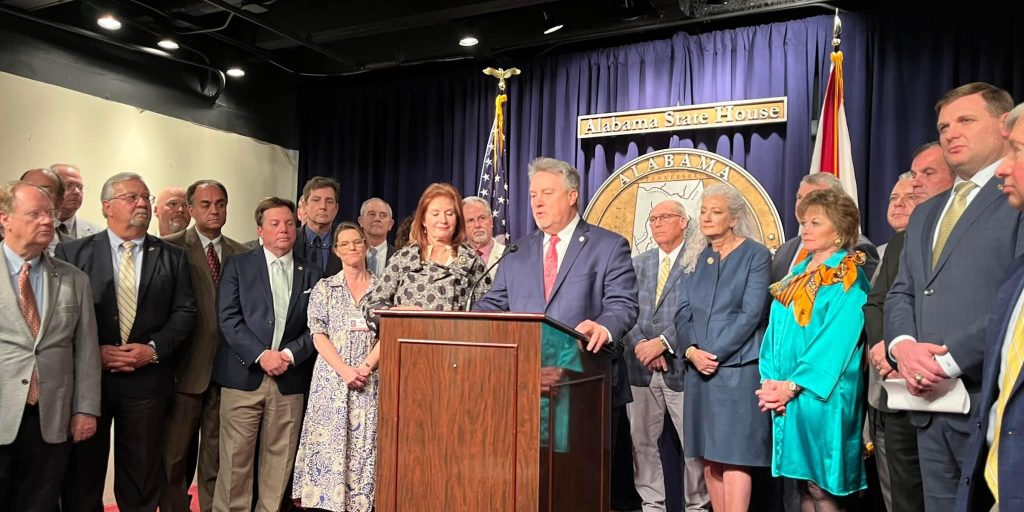After undergoing a controversial two weeks, the Alabama legislature passed the Alabama Human Life Protection Act, which was a ban on almost all abortions. Then on Wednesday, Gov. Kay Ivey signed it into law.
Those actions led to a national backlash, especially given the bill did not provide an exception for rape or incest. However, the bill’s sponsor Rep. Terri Collins (R-Decatur) still insists given the law’s language provided the best opportunity to overturn the U.S. Supreme Court’s 1973 Roe v. Wade decision.
During an appearance on Huntsville radio’s WVNN on Friday, Collins discussed the public reaction to the legislature’s actions and how it differs from the so-called “heartbeat” bills other states are passing into law.
Collins told WVNN’s “The Jeff Poor Show” she was not surprised by the reaction. However, she also noted that given that the Alabama House of Representatives had been working into the late hours, she had not seen much of the national media’s reactions.
“I guess I am not surprised,” she said. “People feel very passionately about this issue regardless of the side that they’re on. And so, I knew there would be lots of rhetoric, lots of hate and lots of love. So, I’ve seen all sides. I’ve not seen as much of the national media parts of it and maybe some of the blowback because I have had a very busy week in the legislature. And we’ve been there to almost midnight every night. And I’ve been working on other bills that are really, really important. I’ve not watched a lot of the national media.”
The Morgan County Republican explained the distinction between the bill she had sponsored and “heartbeat” bills passed by other legislatures like Georgia, which was an effort to use the same terminology as the Roe v. Wade decision.
“The heartbeat bill and some of the other bills address when the child is just considered a life and that we can protect that child from that point on,” Collins said. “This bill addresses the language that Roe v. Wade uses, which is ‘in utero,’ which is it doesn’t get into contraception. It doesn’t even get into conception of a baby as a person at conception. It doesn’t get into the Morning-After Pill. It simply says ‘in utero,’ which is the term for pregnant.”
“So once a woman is pregnant, then the abortion is now illegal for a doctor to perform,” she continued. “And it actually spells out in the bill that the woman is not held liable, or civilly liable. So, it is as clear and as simple as can be. Roe v. Wade decision was that baby in the womb was not a person. This bill simply says we believe that baby in the womb is a person based on current Alabama and the majority of our voters voting to be a pro-life state last fall. We feel it’s the time. I think you see other states feeling like the courts willing to look at that issue and send that decision back to the states.”
She went on to explain this was not the law she wanted for the state and hoped that ultimately, the federal courts would return the issue to the individual states.
@Jeff_Poor is a graduate of Auburn University, the editor of Breitbart TV and host of “The Jeff Poor Show” from 2-5 p.m. on WVNN in Huntsville.











